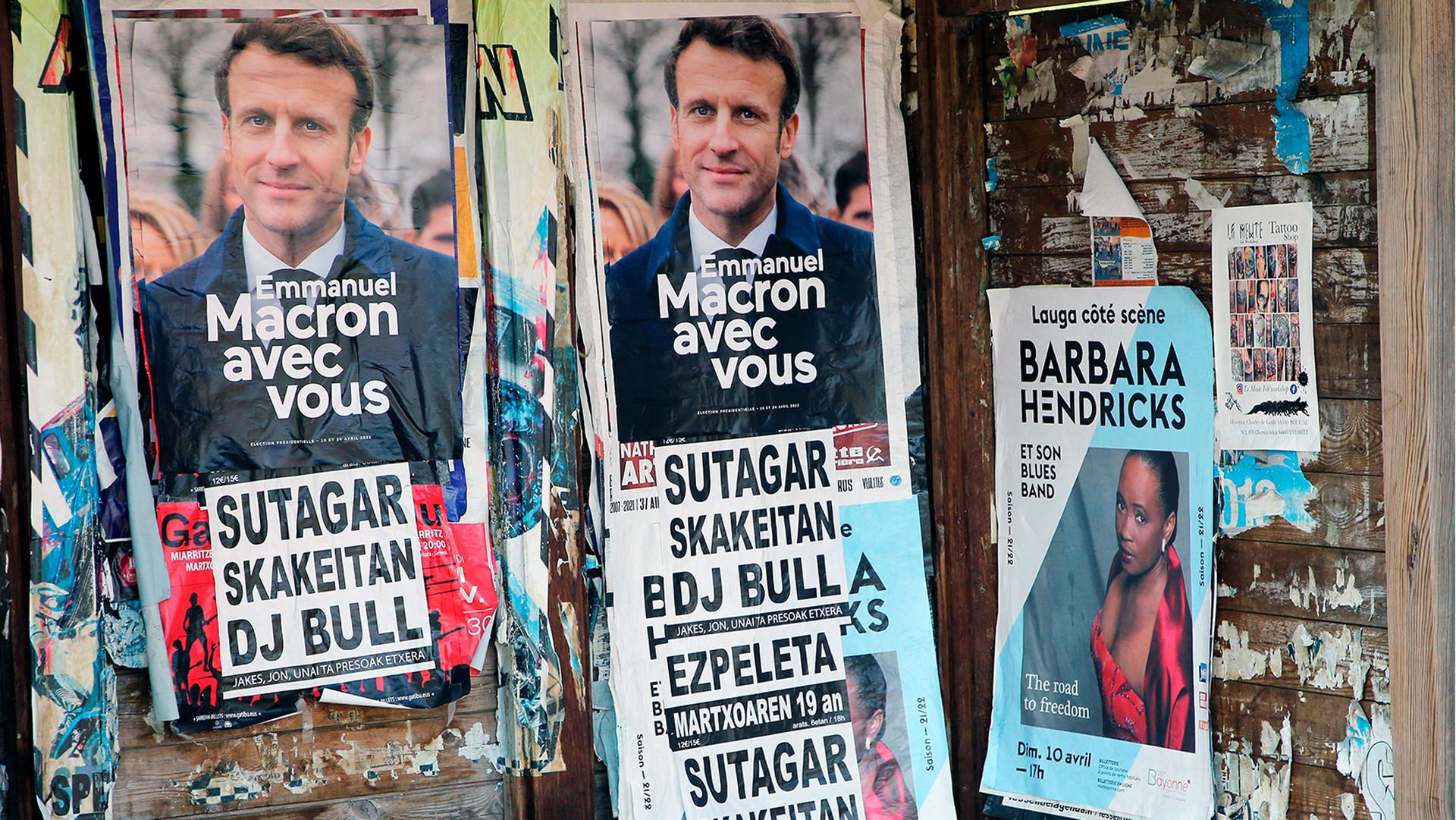France’s presidential election is set for April, with the final campaign season being largely eclipsed by the war in Ukraine.
Since the start of the Russian invasion, incumbent President Emmanuel Macron has seen his already-comfortable poll numbers skyrocket. If reelected, it would be the first time a sitting French president has won a second term in 20 years.
“[Macron] was able to appear [to] the French people as a good crisis manager.”
Call it the “rally ’round the flag” effect.
“When the COVID wave started, and then Ukraine, [Macron] was able to appear [to] the French people as a good crisis manager,” said Gilles Paris, a political writer for Le Monde, France’s largest daily newspaper. “And that’s why he should be reelected easily.”
Macron’s approval ratings have shot up to 51% since the start of Russia’s invasion of Ukraine. The lead has made the 44-year-old comfortable enough to refuse to participate in any debates before the first round of voting.
Related: In France, intensive crash courses for immigrants on French values leave many feeling like outsiders
That’s a disappointment for his opponents, many of whom have seen their poll numbers drop in recent weeks.
The candidate for the center-right party Les Republicans Valérie Pécresse, who has dropped down to fifth place, is dealing with a wave of defections from members of her own party who say they plan to vote for Macron.
The far-right favorite Marine Le Pen, while in second place, is still polling at 13 points behind Macron.
Then there are the candidates who are being forced to eat their own words over recent comments about Russian President Vladimir Putin.
Take Eric Zemmour, a fervent nationalist and euroskeptic, for example. “Before the Russian invasion of Ukraine, Zemmour was viewed as probably the most pro-Russian, and even, pro-Putin candidate,” said Matthieu Gallard, a research director at Ipsos polling group.
Related: A new law in France aims to protect indie bookshops against outsized Amazon competition
While Zemmour said he “condemned” Russia’s invasion “without reservations,” the former television commentator has had a hard time justifying his previous comments — like in 2018, when he said he longed for a “French Putin,” or as recently as mid-February, when he called Putin a “patriot” who “loves and defends his country.”
The deeply fractured political left in France, meanwhile, has been in shambles for months.
The only candidate they have polling in the double digits is far-left firebrand Jean-Luc Melenchon, a deeply divisive anti-NATO, anti-capitalist who wants to bring the retirement age back down to 60.
But many French voters say now is not the time to be voting for extremes on either end of the political spectrum.
“Democracy in France is still quite fragile,” said Serban Dimitriu, a sales manager who lives in eastern Paris.
“Democracy in France is still quite fragile,” said Serban Dimitriu, a sales manager who lives in eastern Paris.
Dimitriu says he’s worried about France following in the populist footsteps of its neighbors, like the UK. He won’t say who he’s voting for, but it definitely won’t be anyone from the far-left or far-right.
Related: French Polynesia and New Caledonia see deadly COVID-19 surge
Lawrence Deley, who works as a teacher, said that she’s still undecided.
Deley normally votes on the center-left candidate. But, frankly, she’s frustrated with all of the candidates this year.
The World is an independent newsroom. We’re not funded by billionaires; instead, we rely on readers and listeners like you. As a listener, you’re a crucial part of our team and our global community. Your support is vital to running our nonprofit newsroom, and we can’t do this work without you. Will you support The World with a gift today? Donations made between now and Dec. 31 will be matched 1:1. Thanks for investing in our work!
